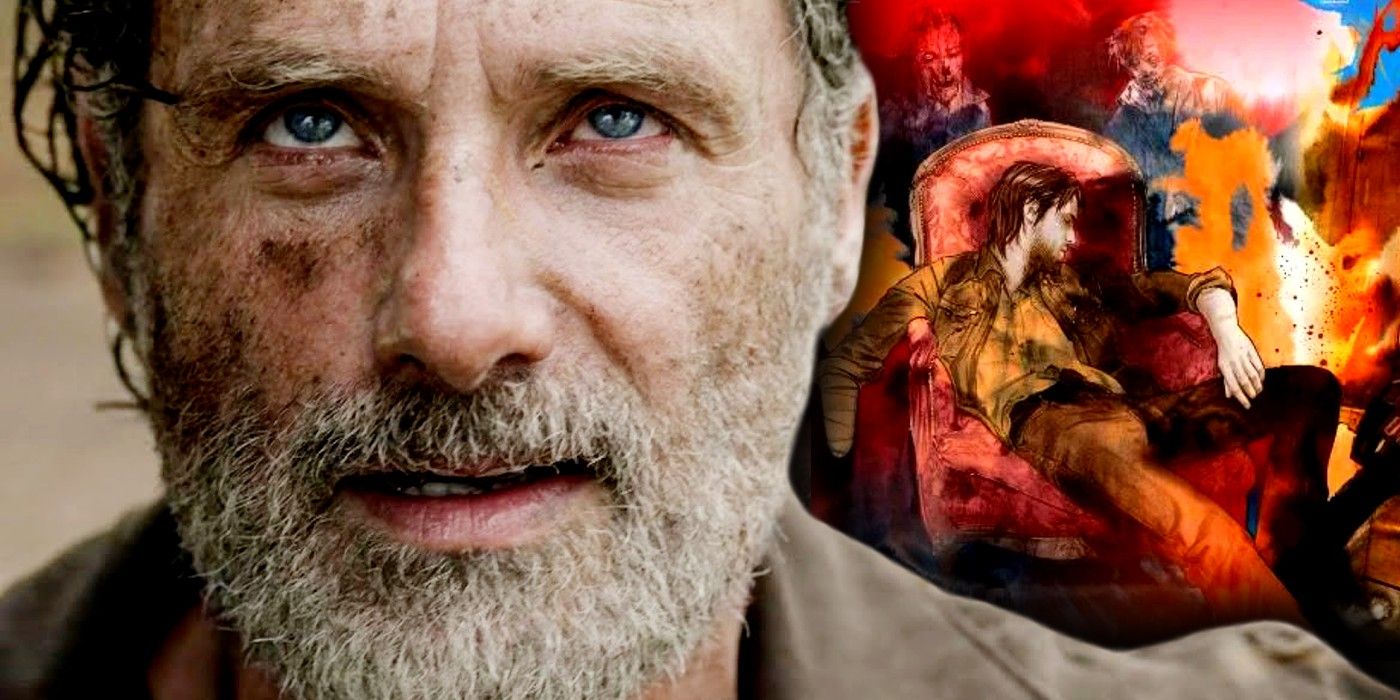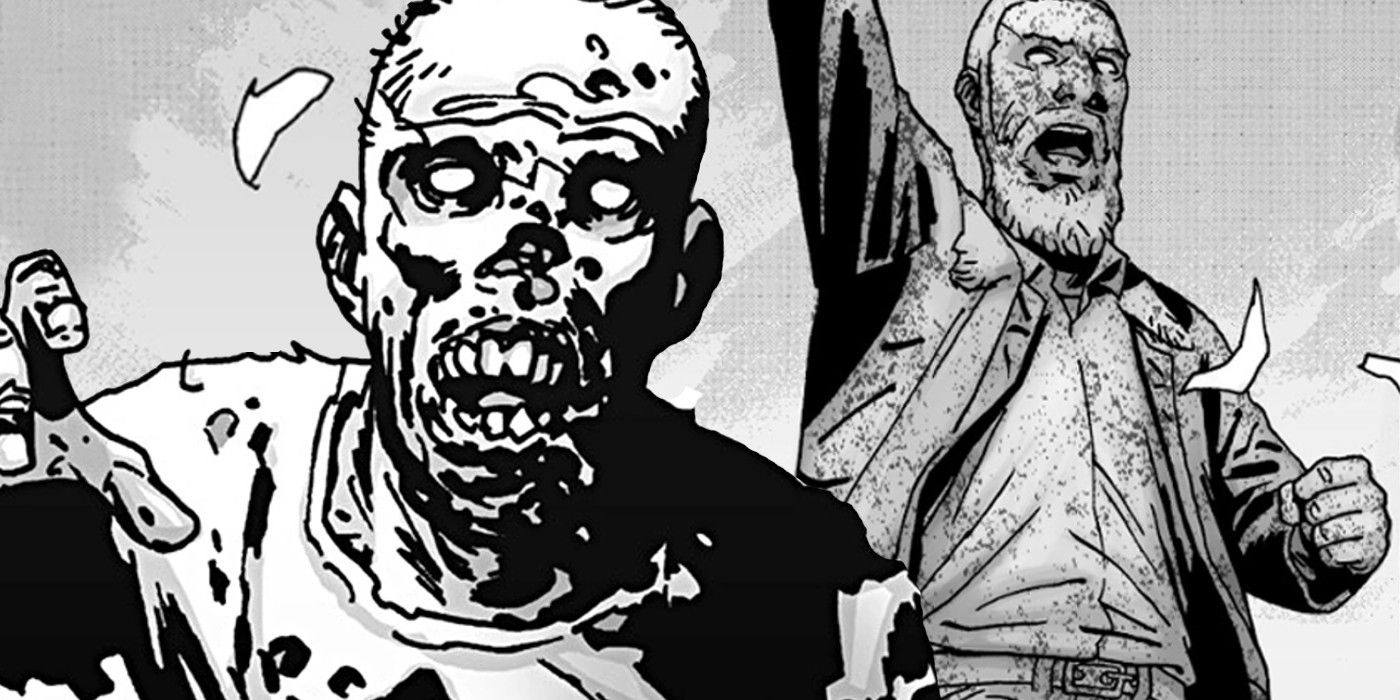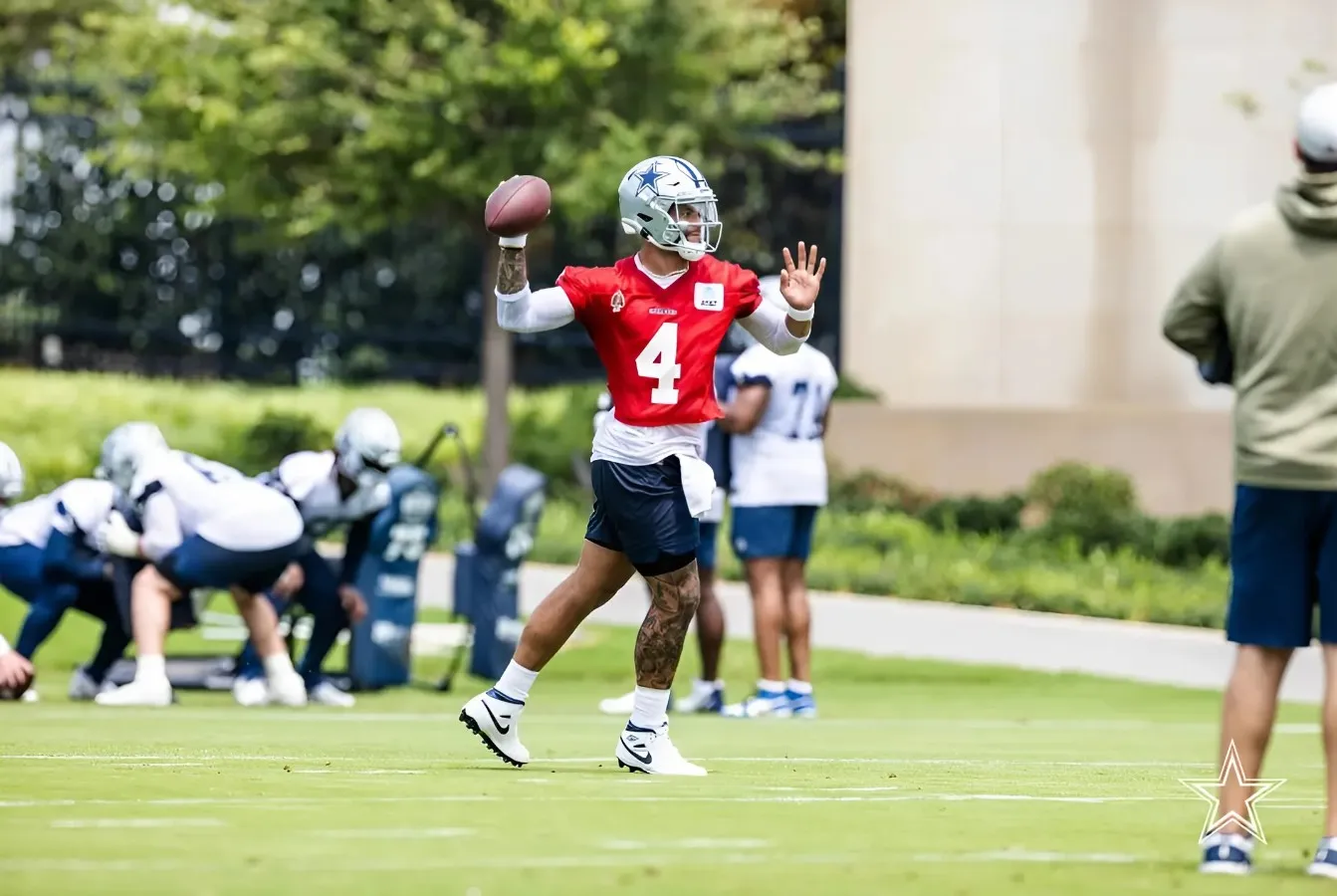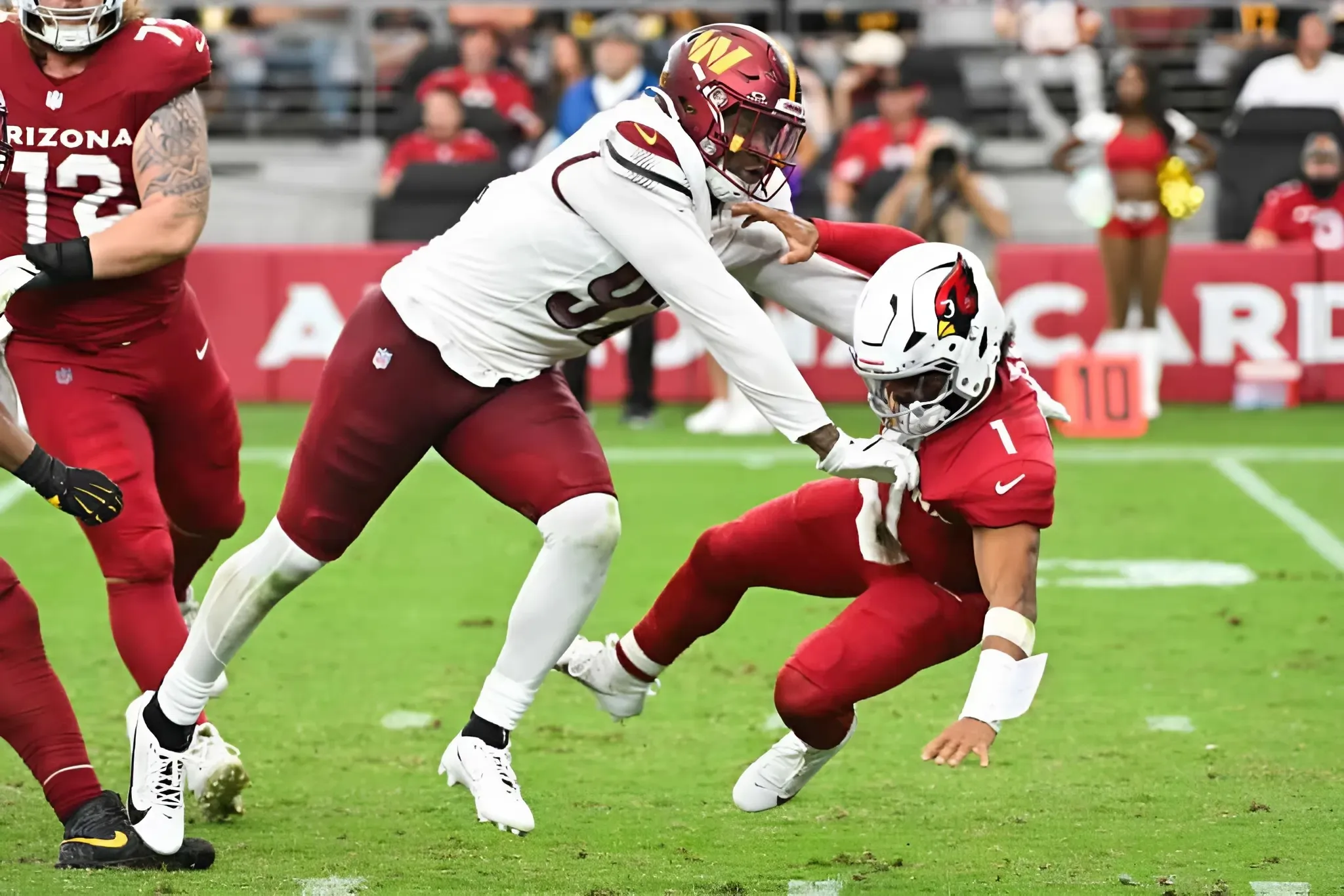Summary
- The Walking Dead 's final words are spoken by the adult Carl's daughter, Andrea, who reponds to a bedtime story about her grandpa Rick with, "Read it again."
- Writer Robert Kirkman revealed that the sentence is an instruction to the reader, since the story is very different when you know it's building to humanity's resurgence.
- Kirkman says Walking Dead is a story of hope, but until you know how it ends, that's incredibly easy to miss.

Zombie epic The Walking Dead ends with three simple words that redefine the series' message, telling readers how to understand its true meaning. According to creator Robert Kirkman, almost no-one understands the story the first time they experience it, with the final words intended to unlock the theme that runs through Rick Grimes' story from beginning to end. For those who think they know Walking Dead, Kirkman has laid down an awesome challenge to re-experience it in a new way.
Recently, Image Comics began to publish The Walking Dead Deluxe - a new version of Robert Kirkman, Charlie Adlard and Tony Moore's hit comic series with colors by Dave McCaig, plus new cover art and creator commentary. In the first issue, Kirkman welcomes fans back to the story by revealing it was essentially always intended to be read twice. In the story's final issue, an adult Carl reads the story of Rick Grimes to his daughter Andrea. Andrea Grimes gets the last words of the series, telling her dad, "Read it again!"
Kirkman explains that this was always intended as a meta instruction to the reader. He writes that The Walking Dead is a story about hope, but that thanks to the many dark events of the story and the moments where it seems the characters are doomed or damned, that fact is hidden until you know the story's ending. Because of this, fans can read Walking Dead once for the thrills and drama, and then a second time as an epic about hope making it possible to survive the worst possible circumstances. Kirkman says:
"Read it again." ... When I wrote those words, I wanted them to be kind of meta. They pertain to the story in an emotional way, but they also have a literal meaning in the real world. Now that you've read the entire Walking Dead series and you know how it concludes and where it leaves you emotionally, you'll have a different perspective on what you're reading. The journey will seem different now. I've always felt The Walking Dead was a story of hope, it almost never reads that way if you don't know how things end. So now readers can, for the first time, see the story how I did as they read it.
Walking Dead's darkest moments don't exactly invite the reader to feel hopeful, but once you know the story is building to humanity's resurgence, everything takes on new meaning.
Walking Dead's "Read It Again" Is an Instruction to the Reader
Walking Dead Is a Story of Hope, But That's Only Clear in Retrospect
The Walking Dead follows Rick Grimes as he attempts to help a small group of survivors to make it through a zombie apocalypse, gradually growing into a leader who influences the structure and values of the resurgent human civilization. Following Rick's death, the final issue's time jump leaps ahead 25 years into the future, returning to Carl as a grown man, now living inside a safe zone where zombies are no longer a fact of life. Major human settlements are now in contact with each other, with a railway being built to connect groups on the East and West coasts of America. While there are zombies (or 'Walkers') in existence, their numbers have crumbled and they're no longer a concern for the average person.
In this world, the years of terror and death fans watched Rick's group fight to survive are known as the Trials, with the remaining humans now seeing this time as an era which stripped away unnecessary and damaging aspects of human existence, leaving them with a fairer and more purposeful society. Marking Rick's contribution to this new age, fans see a giant statue of Rick leading the survivors into battle, and it's clear he's become a semi-mythic figure, with Carl having mixed feelings about how the facts of his father's life are being warped by the legend.
The comic ends with Carl reading Rick's story to his daughter, just as the reader themselves has come to the end of Rick's tale. According to Kirkman, Andrea's instruction to "read it again" is meant to send them back to the beginning, this time reading all of Rick's struggles and near-corruption as the path to a better world.
If Rick had simply survived and made it to the Commonwealth but not become someone capable of changing it, the story would end with humanity returning to its worst excesses.
Walking Dead's Darkness Hides the Hope At Its Core
The Ending Reveals That Without Rick's Suffering, Humanity Would Have Come Back Worse
It's worth noting that there are some truly dark moments in The Walking Dead, including Rick viciously slaughtering people who he perceives as threats. Kirkman has shared before that one dark fight in which Rick bites his opponent was meant to mark the moment he became a "living zombie", with Grimes at one point declaring, "We are the walking dead" to his fellow survivors, admitting he has lost any sense of hope for the future. The story later sees Rick turn away from his most horrific violence, crucially sparing Negan's life and rekindling the former villain's faith in human potential. Rick also takes back his iconic declaration, finding strength again in the connections he's created.
In this sense, Kirkman is exactly right that The Walking Dead doesn't feel like a hopeful story in its darkest moments. Indeed, there are plenty of moments where it seems like Rick may be on the road to becoming a monster, and countless moments where beloved characters die horribly. The Walking Dead portrays a world where no-one is 'safe,' and where even children can kill and die. However, with the future goal of what the Commonwealth will become in mind, Rick's journey is more clearly shaping him into the leader the world needs to come through the trials.
It's worth noting that zombies aren't the only threat to humanity. When Rick's survivors reach the Commonwealth, they discover a corrupt society where rigid social categories are maintained through violence, with those who were privileged before the zombie outbreak forcing their way back to the top of the pile. It's only because of who Rick and the survivors have become that they're able to topple the Commonwealth's leadership and install a system based on equality. If Rick had simply survived and made it to the Commonwealth but not become someone capable of changing it, the story would end with humanity returning to its worst excesses.
However, while there's a lot of darkness, hope isn't absent from the first reading of The Walking Dead. While the characters constantly suffer and commit heinous crimes, the story sees them find their way back to humanity again and again. No matter how bad things get, The Walking Dead returns repeatedly to the idea that change and improvement is possible. Negan in particular embodies this idea, as the seemingly irredeemable villain is persuaded by Rick's vision of the world, living the rest of his life in penitent exile.
Walking Dead was originally intended to have a far bleaker ending, with Kirkman even warning Rick Grimes actor Andrew Lincoln what to expect.
Walking Dead's Ending Was Almost Completely Different
The Story Didn't Always End with Hope

The effectiveness of Walking Dead's ending makes it particularly surprising that Kirkman originally had a totally different vision for how the story would end. In The Walking Dead Deluxe #84, Kirkman reveals that the imagery of Rick's statue was always planned, but with an extra element that was "bleak, sad, possibly terrible." Kirkman's original intention was to end with a surprise time jump into the future, cutting from Rick leading the survivors into battle to a statue of him in the same pose. However, the art would then have zoomed out, revealing a zombie stumbling around its base.
The implication was that while Rick's survivors had lived long enough to bring back some kind of society, the zombies had ultimately won out - perhaps finally driving humanity to extinction. Kirkman was so confident of this ending, he even told it to Greg Nicotero (executive producer and director of the Walking Dead TV show) and Rick Grimes actor Andrew Lincoln. However, because this ending could be pushed back indefinitely, Kirkman kept delaying the series' ending, eventually coming to feel that it wasn't a satisfying ending to the story he was planning to tell.
In this way, Walking Dead's sense of hope actually saved it from a bleak ending, as the story gradually persuaded Kirkman that total defeat didn't suit the story of hardship and hard-won redemption he was telling. Any fan who read the original Walking Dead comics should go back to the beginning and embark on a second reading, as the series' creator shares that not only is this the best way to understand its key themes, but that this is so much the case, the story even ends with the instruction to "read it again."



